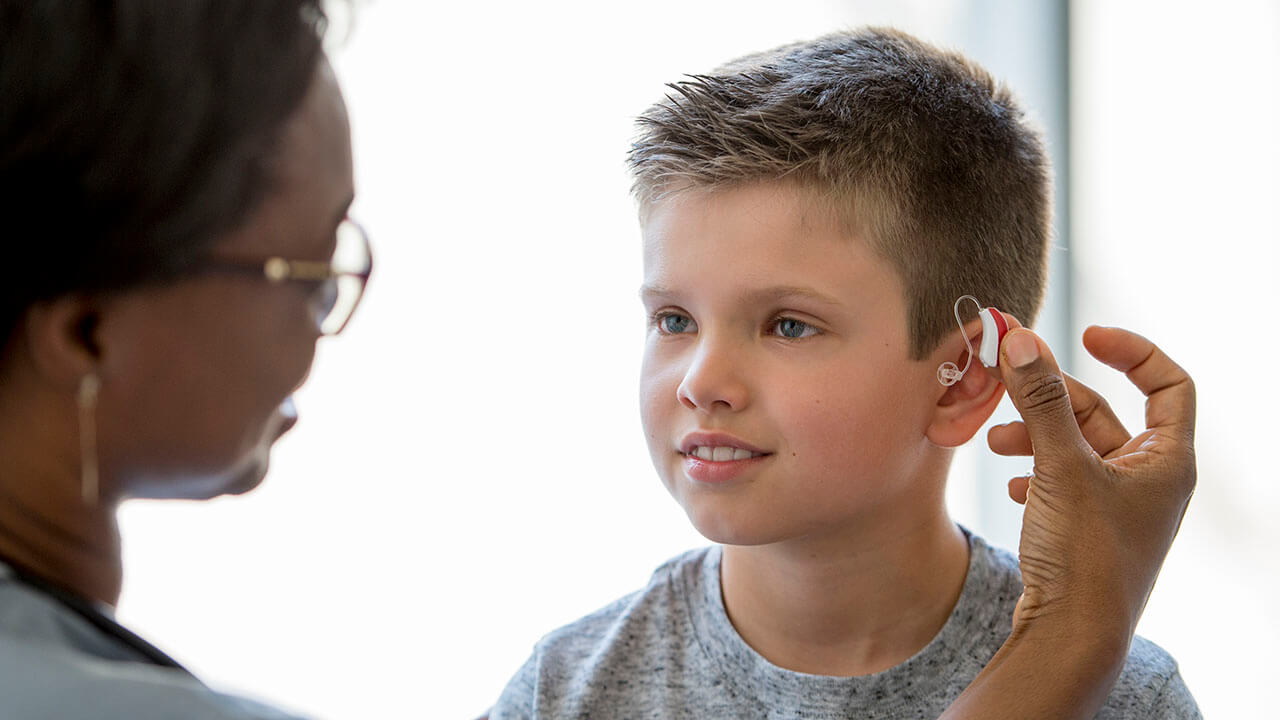

Cochlear implants can greatly improve quality of life. The benefits are many including hearing better than with a hearing aid, ability to focus better when in noisy environments, ability to reconnect with sounds that couldn't be heard before the implant, feeling safer with the ability to hear alarms or people calling out, talking and hearing while on the phone and enjoying music. With all of these benefits, more questions could arise. Below we address the most frequently asked questions about cochlear implants.
The implant consists of an external portion that sits behind the ear and a second portion that is surgically placed under the skin. An implant has the following parts:
Cochlear implants are FDA-approved for use in children beginning at 12 months of age. For young children who are deaf or severely hard-of-hearing, using a cochlear implant while they are young exposes them to sounds during an optimal period to develop speech and language skills.
Some adults who have lost all or most of their hearing later in life can also benefit from cochlear implants. They learn to associate the signals from the implant with sounds they remember, including speech, without requiring any visual cues such as those provided by lip reading or sign language.
With help from a cochlear implant, the world can open up for those who are deaf or hard-of-hearing. If you think that cochlear implants could be right for you, schedule an appointment to talk to a Prevea audiologist.
What is a cochlear implant?
A cochlear implant is a small, complex electronic device that can help to provide a sense of sound to a person who is deaf or severely hard-of-hearing. An implant does not restore normal hearing. Instead, it can give a deaf person a useful representation of sounds and help him/her to understand speech.How does a cochlear implant work?
A cochlear implant is very different from a hearing aid. Hearing aids amplify sounds so they may be detected by damaged ears. Cochlear implants bypass damaged portions of the ear and directly stimulate the auditory nerve. Signals generated by the implant are sent by way of the auditory nerve to the brain, which recognizes the signals as sound. Hearing through a cochlear implant is different from normal hearing and takes time to learn.The implant consists of an external portion that sits behind the ear and a second portion that is surgically placed under the skin. An implant has the following parts:
- A microphone, which picks up sound from the environment
- A speech processor, which selects and arranges sounds picked up by the microphone
- A transmitter and receiver/stimulator, which receive signals from the speech processor and convert them into electric impulses
- An electrode array, which is a group of electrodes that collects the impulses from the stimulator and sends them to different regions of the auditory nerve
Who gets cochlear implants?
Children and adults who are deaf or severely hard-of-hearing can be fitted for cochlear implants.Cochlear implants are FDA-approved for use in children beginning at 12 months of age. For young children who are deaf or severely hard-of-hearing, using a cochlear implant while they are young exposes them to sounds during an optimal period to develop speech and language skills.
Some adults who have lost all or most of their hearing later in life can also benefit from cochlear implants. They learn to associate the signals from the implant with sounds they remember, including speech, without requiring any visual cues such as those provided by lip reading or sign language.
How does someone receive a cochlear implant?
Use of a cochlear implant requires both a surgical procedure and significant therapy to learn or relearn the sense of hearing. Not everyone performs at the same level with this device. The decision to receive an implant should involve discussions with medical specialists, including an experienced cochlear implant surgeon.With help from a cochlear implant, the world can open up for those who are deaf or hard-of-hearing. If you think that cochlear implants could be right for you, schedule an appointment to talk to a Prevea audiologist.



.jpg?width=1280&height=720&ext=.jpg)